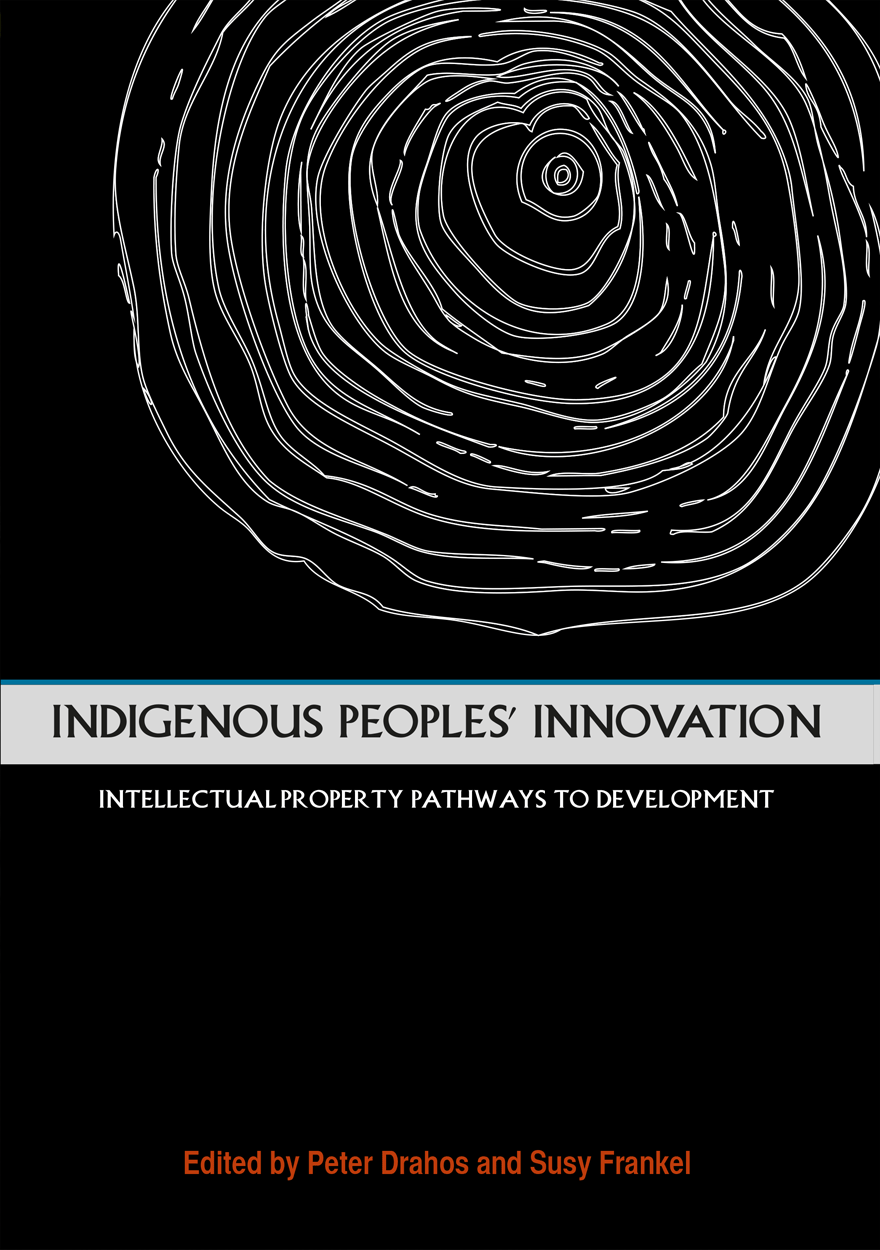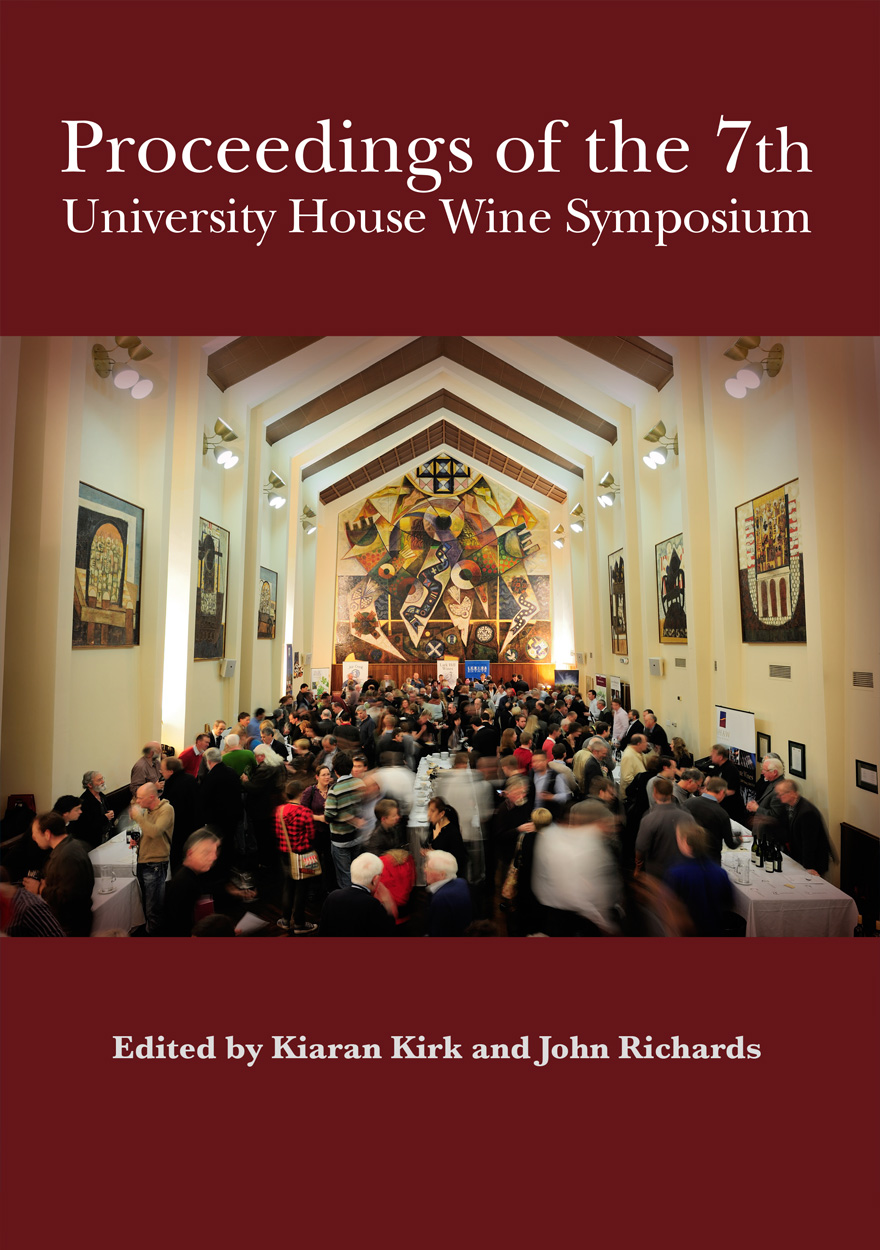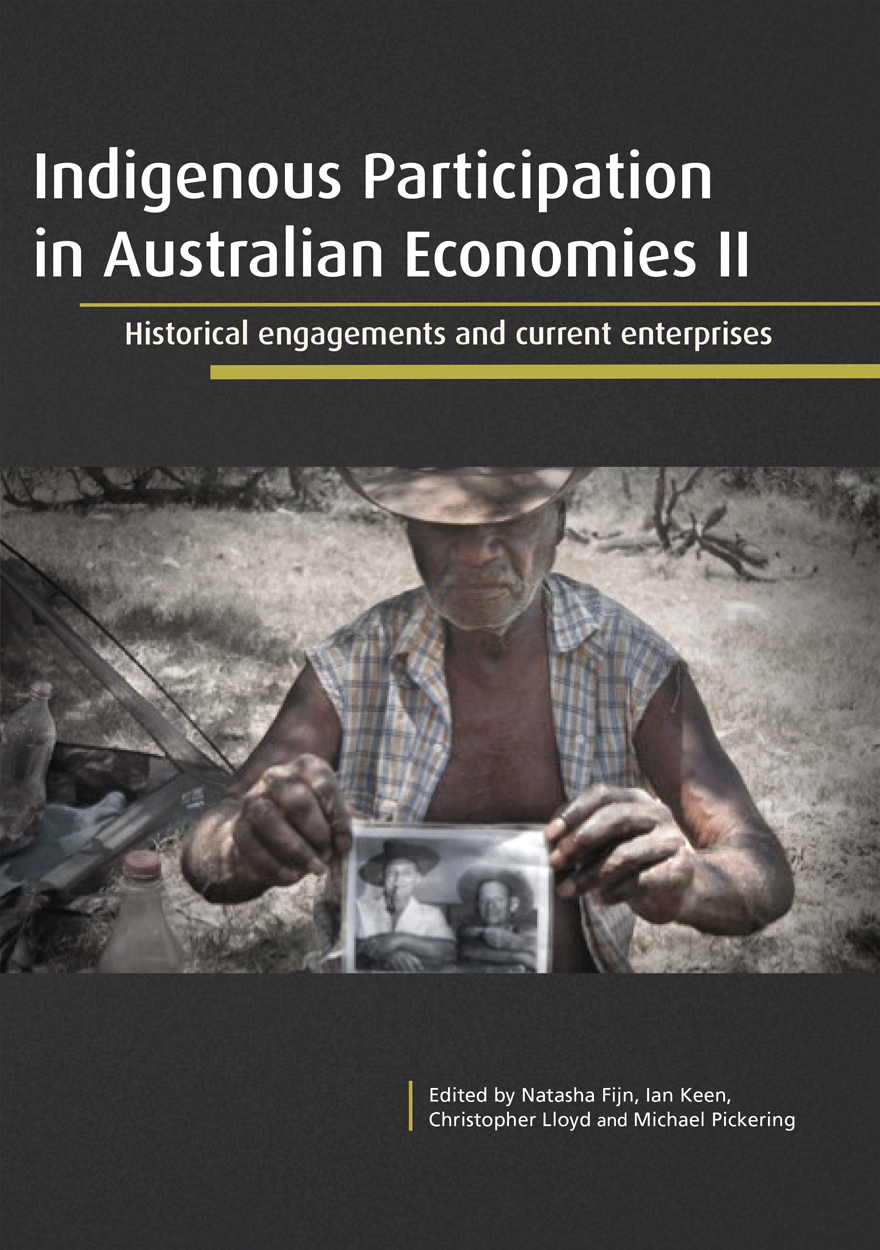Search titles
Displaying results 31 to 40 of 249.

Indigenous Peoples' Innovation »
Intellectual Property Pathways to Development
Edited by: Peter Drahos, Susy Frankel
Publication date: August 2012
Traditional knowledge systems are also innovation systems. This book analyses the relationship between intellectual property and indigenous innovation. The contributors come from different disciplinary backgrounds including law, ethnobotany and science. Drawing on examples from Australia, New Zealand and the Pacific Islands, each of the contributors explores the possibilities and limits of intellectual property when it comes to supporting innovation by indigenous people.

Shaping a Nation »
A Geology of Australia
Edited by: Richard Blewett
Publication date: August 2012
Shaping a Nation: A Geology of Australia is the story of a continent’s geological evolution as seen through the lens of human impacts. Exploring the geology, resources and landscapes of Australia, the book reveals how these have helped to shape this nation’s society, environment and wealth. Presented in a refreshingly non-linear format, the book summarises much of what we know about this country’s geological history, discussing the fossil record and evolution of life across the continent, describing its mineral and energy reserves, and revealing the significance of its coastal and groundwater systems.
The book also explores some of the challenges and opportunities presented by Australia’s rich geological heritage, and outlines the issues they present in Australian society today. Based on much of the latest science, the book reveals Australia’s expertise in the geosciences and reinforces the vital role they play in informing its present and future development.
In presenting the latest geoscientific knowledge, Shaping a Nation is vividly illustrated by technical drawings and figures and accompanied by stunning photography that reveals the extraordinary beauty of Australia’s geology and landscapes. For the avid reader, an accompanying DVD hosts extensive appendices, including supplementary reading and reference material, maps, movies and an interactive 3D model showcasing many geoscience datasets.
Note for viewing ebook: Because of the large size of the ePub, right-click on the link in the Media Download page and first save it to your computer. Then transfer it to your e-reader device. The ePub is suitable for viewing on iPad and Android devices.
Printed copies are available for $70.00 AUD incl GST (plus shipping) through Geoscience Australia.

Proceedings of the 7th University House Wine Symposium »
Edited by: Kiaran Kirk, John Richards
Publication date: August 2012
Even before University House was opened in 1954, a House Wine Committee had been formed, leading to the 1st University House Wine Symposium, held in 1956. These proceedings record the 7th University House Wine Symposium, held in 2011 to commemorate the 40-year anniversary of the first plantings that have led to the internationally acclaimed wines of the Canberra District Wine Region.

Indigenous Participation in Australian Economies II »
Historical engagements and current enterprises
Publication date: July 2012
This is the second volume to emerge from a project on Indigenous participation in the Australian economy, funded by an Australian Research Council (ARC) Linkage Grant, and involving the cooperation of the School of Archaeology and Anthropology at The Australian National University and the National Museum of Australia. The Chief Investigators were Ian Keen, Chris Lloyd, Anthony Redmond, the Partner Investigator was Mike Pickering, Fiona Skyring was an associate researcher on the project, and Natasha Fijn was research assistant. The present volume arises out of a conference in Canberra on Indigenous Participation in Australian Economies at the National Museum of Australia on 9–10 November 2009, which attracted more than thirty presenters. The diverse themes included histories of economic relations, the role of camels and dingoes in Indigenous–settler relations, material culture and the economy, the economies of communities from missions and stations to fringe camps and towns, the transitions from payment-in-kind to wage economies and Community Development Employment Projects, the issue of unpaid and stolen wages, local enterprises, and conflicts over development. Sixteen of those papers have been developed as chapters in this volume, together with a foreword by Professor Jon Altman. This book comprises a companion volume to Indigenous Participation in Australian Economies: Historical and Anthropological Perspectives, published by ANU Press in 2010.

Public Sector Governance in Australia »
Authored by: Meredith Edwards, John Halligan, Bryan Horrigan, Geoffrey Nicoll
Publication date: July 2012
Australia lacks a scholarly book that covers recent developments in public sector governance in Australia and blends cross-disciplinary perspectives from law, management, public administration and public policy. The primary reason for writing this book is to fill the gap in the treatment of this subject, and to provide insights from empirical evidence and current practice.
The book provides the first comprehensive theoretical and empirical work on governance in the Commonwealth public sector. It addresses the issues that emerged under the Howard government as well as their handling under the Rudd and Gillard governments. The book aims to enhance understanding of and communication about public governance across government, industry and the community.
The authors bring to this book expertise gained from political science, public administration and policy, public and private sector law.

Directions in Australian Electoral Reform »
Professionalism and Partisanship in Electoral Management
Authored by: Norm Kelly
Publication date: May 2012
Australia has a proud history of being an international leader in electoral administration, and Australian electoral commissions continue to have a professional, non-partisan approach to the management of elections. Yet their independence is constrained by the electoral laws they need to administer, and parliamentary committees charged with the oversight of the conduct of elections do so with a clear partisan bias.
Elections are all about winners, but who decides who the winners will be? Voters definitely have a big say, but it is the electoral system that determines how votes translate into seats in parliament. Any changes to the electoral system require the support of those in power, and it is important to question who benefits from electoral reforms. It is not surprising that partisanship plays a role and that governing parties usually benefit, although that is not always the case.
This book assesses Australian electoral reforms of the past 30 years using personal interview data and parliamentary debates, to provide a picture of the reform process as well as the outcomes. These issues, such as who gets to vote, the use of postal voting, party registration and vote weighting, have a profound impact on who wins elections. The book also examines Australia’s electoral administration, testing for professionalism, independence and integrity.

Rising China: Global Challenges and Opportunities (Chinese version) »
崛起的中国:全球机遇与挑战(预售)
Edited by: Jane Golley, Ligang Song
Publication date: May 2012
“中国经济前沿”丛书致力于对中国经济发展中的热点问题提供最新的研究成果与解读视角,作者均为国内外相关研究领域最具权威或居于研究前沿的学者。收录的论文无论在理论研究还是实证分析方面,都具有相当高的水准。本书集中于全球金融危机对中国的影响,分别从经济、地缘政治和环境气候变化视角解读世界和中国未来的发展走势。
Chinese print version of this book is available from Social Science and Academic Press

A Trial Separation »
Australia and the Decolonisation of Papua New Guinea
Authored by: Donald Denoon
Publication date: May 2012
When it came in September 1975, Papua New Guinea’s independence was marked by both anxiety and elation. In the euphoric aftermath, decolonisation was declared a triumph and immediate events seemed to justify that confidence. By the 1990s, however, events had taken a turn for the worse and there were doubts about the capacity of the State to function. Before independence, Papua New Guinea was an Australian Territory. Responsibility lay with a minister in Canberra and services were provided by Commonwealth agencies. In 1973, Prime Minister Gough Whitlam declared that independence should be achieved within two years. While Australians were united in their desire to decolonise, many Papua New Guineans were nervous of independence.
This superlative history presents the full story of the ‘trial separation’ of Australia and Papua New Guinea, concluding that — given the intertwined history, geography and economies of the two neighbours — the decolonisation project of ‘independence’ is still a work in progress.

East Asia Forum Quarterly: Volume 4, Number 2, 2012 »
Publication date: May 2012
East Asia Forum Quarterly grew out of East Asia Forum (EAF) online, which has developed a reputation for providing a platform for the best in Asian analysis, research and policy comment on the Asia Pacific region in world affairs. EAFQ aims to provide a further window onto research in the leading research institutes in Asia and to provide expert comment on current developments within the region. The East Asia Forum Quarterly, like East Asia Forum online, is an initiative of the East Asia Forum (EAF) and its host organisation, the East Asian Bureau of Economic Research (EABER) in the Crawford School of Economics and Government in the College of Asia & the Pacific at The Australian National University.
Download for free
Not available for purchase

With the Benefit of Hindsight »
Valedictory Reflections from Departmental Secretaries, 2004–11
Publication date: April 2012
Secretaries of government departments in Australia are the bureaucratic leaders of their generation. They are ambitious, highly-talented executives who have risen to the very pinnacle of their chosen vocation – public service to the Australian nation – usually after having spent most, if not all, of their professional careers dedicated to the public service. They serve governments as their top advisers and in policy terms are often some of the most important decision-makers in the country.
This collection brings together the valedictory speeches and essays from a departing group of secretaries (and one or two other equivalent agency heads) who left the Australian Public Service between 2004 and 2011. Over this period of time it gradually became accepted that departing secretaries and heads of significant agencies would present a valedictory address to their peers at a public farewell function. The first two speeches in this collection were initiated informally and given at functions organised by their agencies; in 2005 the process was formalised with the Australian Public Service Commission acting as organiser.
These contributions contain reflections, commentaries, occasional fond memories or key turning-points in careers, critiques of changes that have occurred and an outline of the remaining challenges their successors will face as the public administrators of tomorrow.
From the outset it is clear that there is no uniform message, no single narrative levelled either in praise or in criticism, other than pride in the public service and strong belief in the contribution it makes to the Australian community. They have their own personal ‘takes’ on how the public service looks to them, on its performance and on the challenges confronting public administration into the future. Most spend some time looking back, reflecting on the extent of change that has occurred over the length of their careers; but equally importantly they look forward, anticipating future policy dilemmas and capacity challenges.



